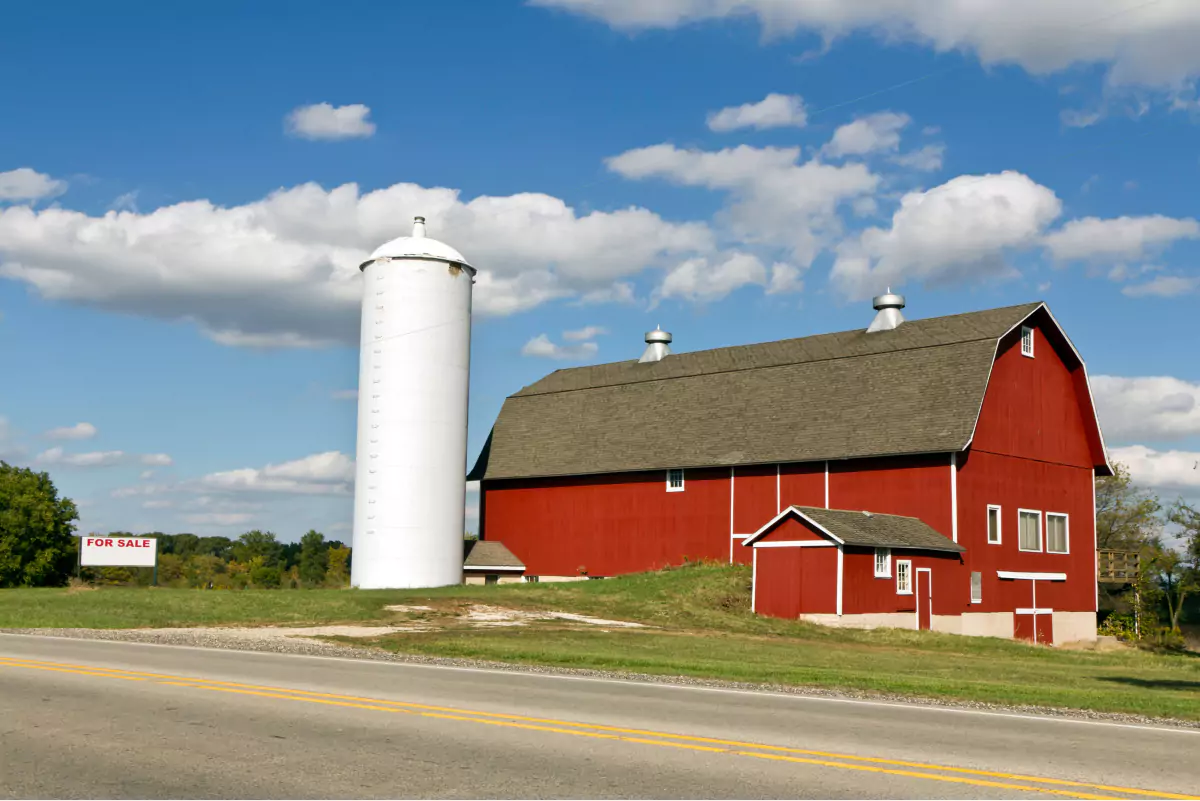Feeling the Pinch on Your Farm?

Authored by: Kevin Block – Partner, CPA | Updated: August 28, 2025
Featured Topics:
As a Partner at MBE CPAs, I understand farmers’ challenges with rising inflation and property taxes. In 2025, farmers are expected to spend about $14 billion on fuel and oil, their ninth-highest input cost. Spending is projected to ease slightly in 2026, dropping closer to $13.7 billion, reflecting more stable energy markets.
In 2024, property taxes nationwide rose by approximately 2.7 percent. While this may seem modest, some states experienced much sharper increases. Early 2025 assessments indicate that farmland property taxes are rising sharply again, with the base rate increasing by about 20 percent to $2,280 per acre in Indiana and similar spikes in other major farm states. These increasing costs create significant financial pressure on rural landowners and the agriculture industry.
At MBE CPAs, we provide farmers with tax planning to manage these challenges. In this article, I’ll explain how rising property taxes impact agriculture and offer strategies to reduce the burden.
Why Are Property Taxes Rising?
COVID-19 changed migration patterns in 2020 after nearly a decade of negative movement. More people began relocating to rural areas as remote work allowed greater flexibility. Many wealthier Americans moved to rural communities, driving up property values.
The farmland market remains strong, and home values in agricultural states are rising quickly. For example, the median home value in Nebraska is about $276,700, up roughly 45 percent since 2019. In Kansas, the median reached about $303,000 in July of 2025, an increase of about 24 percent since 2019. Home values are expected to remain elevated into 2026, keeping pressure on property tax assessments.
Property taxes are tied directly to these rising values, meaning higher taxes for landowners. Inflation is also pushing many states to raise tax rates, further increasing the financial burden on farmers.
What Do Rising Taxes Mean for Farmers?
While high land values seem positive, they can be problematic. When farmland values increase, so do the taxes owed on that land. The challenge comes when land prices cool and farmers’ incomes decline, but property taxes continue to rise.
Property taxes are tied directly to these rising values, meaning higher landowners’ taxes. Inflation is also pushing many states to raise tax rates, further increasing the financial burden on farmers.

What Farm Tax Planning Solutions Are Available?
Many farmers use a mix of strategies to reduce their tax burden and take advantage of various tax deductions. Below are some of the most used tax exemptions and programs in agriculture, along with how farmers can qualify for them.
→ Horticulture Tax Exemption
While some might hope for it, horticulture tax exemptions don’t usually apply to individual farmers. Under IRS Code Section 501(c)(5), these exemptions are designed for agricultural organizations like co-ops, not individual farmers. However, this exemption can reduce costs for farming co-ops, benefiting participating farmers.
→ Homestead Exemption
Several states offer homestead exemptions that reduce property taxes on a farmer’s primary residence. These exemptions lower the home’s assessed value, reducing the taxes owed. In some cases, this exemption can also apply to a portion of the surrounding agricultural land.
→ Farm Equipment Tax Exemption
Section 175 of the IRS code allows farmers to deduct the cost of agricultural equipment, like tractors, from their taxable income. This tax exemption for farm equipment provides significant benefits for farmers investing in new machinery. In 2025, farmers can deduct up to $2.5 million under Section 179, with a phase-out beginning at $4 million. This limit is indexed for inflation, so the deduction cap will likely increase again in 2026.
Farmers can also claim the One Big Beautiful Bill bonus depreciation, allowing them to take more significant deductions in the first year of equipment purchases. This farm equipment depreciation benefit enables farmers to accelerate their tax savings when purchasing qualifying agricultural equipment.
→ Soil Testing Deductions
Farmers who purchase or inherit land can take advantage of IRS Section 180, which allows deductions for soil fertility. Keeping track of these results is vital to help maximize deductions for your tax savings.
→ Conservation Easements
Many farmers protect their land through conservation easements, which limit development to preserve its natural or agricultural features. As the easement’s appraised value decreases, this often results in lower property taxes. Federal income tax deductions are also available based on the easement’s appraised value. Farmers exploring renewable energy options may also benefit from the One Big Beautiful Bill solar tax credit when installing qualifying solar systems on their agricultural properties.
→ Land Trusts
Land trusts are nonprofit organizations that help farmers with conservation easement donations or sales. Partnering with a land trust offers tax benefits while promoting land conservation. Farmers can contribute to conservation efforts and reduce tax liabilities by working with these organizations.
→ Succession Planning
Only 23 percent of farmers have a succession plan. Many hope to pass their farms on to their children, but estate taxes can force heirs to sell the land. Succession planning ensures a smoother farmland transition to the next generation and helps prevent unexpected tax burdens.
Access to Agricultural Tax Professionals
Do you need help reducing your tax burden? At MBE CPAs, we specialize in helping farmers optimize their financial strategies. Agricultural tax laws can be complex, but our professionals can guide you. We’ll help you document eligible expenses, maximize deductions, and develop a tax plan that works for your operation.
Let us assist you in lowering your taxes and keeping more of your hard-earned income.
